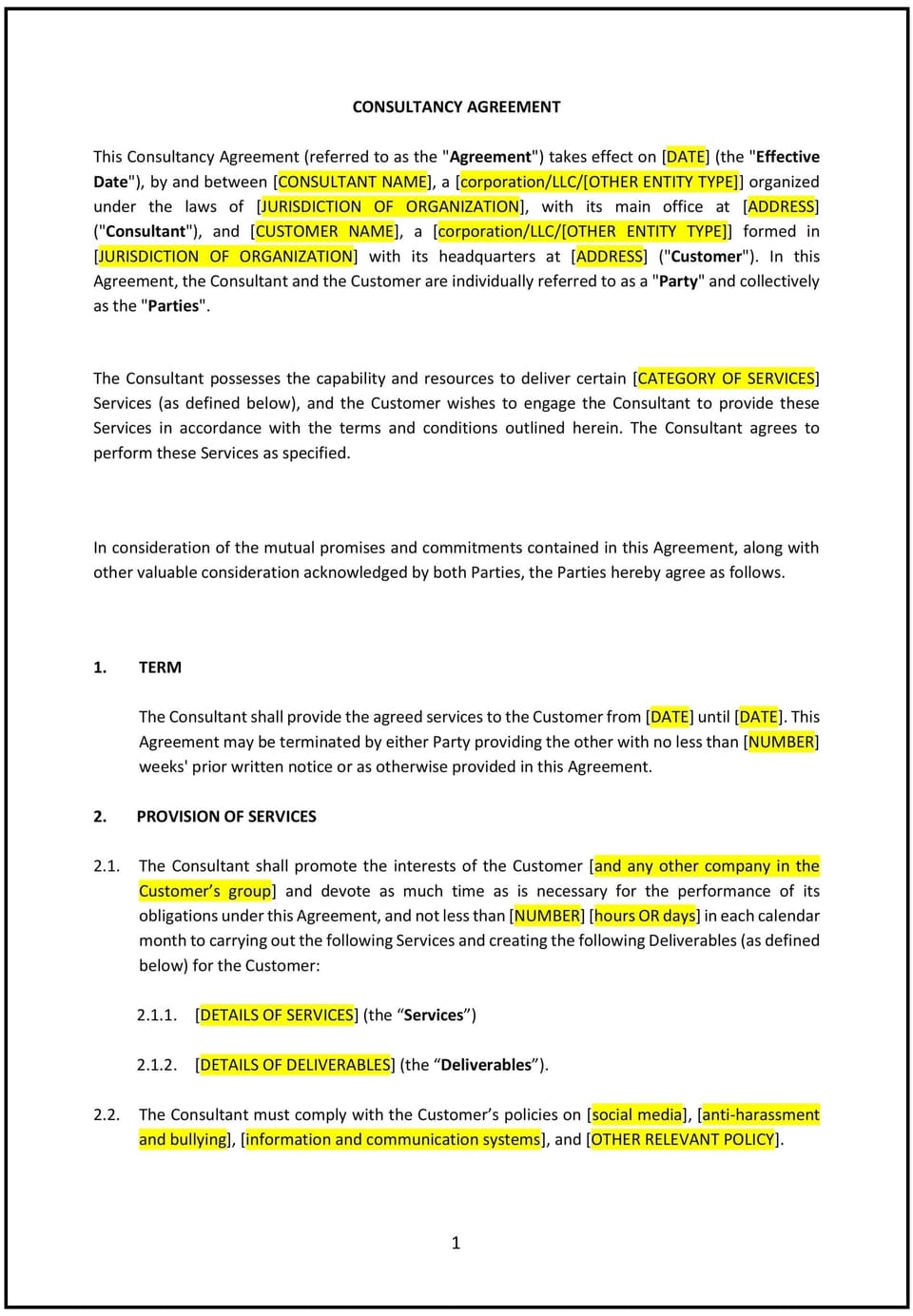Consultancy Agreement (Pro-Customer) (Massachusetts): Free template

Consultancy Agreement (Pro-Customer) (Massachusetts)
A Consultancy Agreement (Pro-Customer) in Massachusetts is a contract that outlines the terms of a consulting engagement while prioritizing protections for the hiring company. This agreement is commonly used for professional services such as business strategy, technology advisory, and financial consulting.
Businesses in Massachusetts use this agreement to define service expectations, payment structures, confidentiality terms, and liability protections. It helps mitigate risks by ensuring the consultant adheres to agreed-upon deliverables while limiting the business’s exposure to disputes or liabilities.
Tips for drafting and maintaining a Consultancy Agreement (Pro-Customer) in Massachusetts
- Clearly define the scope of work to prevent misunderstandings and scope creep.
- Establish payment terms, including milestone payments, invoicing procedures, and dispute resolution.
- Include strong confidentiality and intellectual property ownership clauses to protect business assets.
- Limit consultant liability to avoid excessive financial exposure.
- Ensure compliance with Massachusetts contract laws, including independent contractor classification and enforceability of restrictive covenants.
Frequently asked questions (FAQs)
Q: What should Massachusetts businesses include in a Consultancy Agreement (Pro-Customer)?
A: Businesses should include service descriptions, payment terms, confidentiality provisions, liability limitations, and termination rights to safeguard their interests.
Q: How does a Consultancy Agreement (Pro-Customer) benefit businesses in Massachusetts?
A: It ensures consultants deliver services under clear terms, protecting the business from potential risks and disputes.
Q: Can a Massachusetts business require a consultant to transfer all intellectual property rights?
A: Yes, but the contract must explicitly state that any work product created during the engagement is owned by the business.
Q: Are non-compete clauses enforceable in Massachusetts consultancy agreements?
A: Massachusetts has strict limitations on non-compete clauses, particularly for low-wage workers, and they must be reasonable in scope, duration, and geography.
Q: What termination terms should businesses include in a Consultancy Agreement?
A: Businesses should specify notice periods, final payment obligations, and post-termination confidentiality requirements.
This article contains general legal information and does not contain legal advice. Cobrief is not a law firm or a substitute for an attorney or law firm. The law is complex and changes often. For legal advice, please ask a lawyer.


